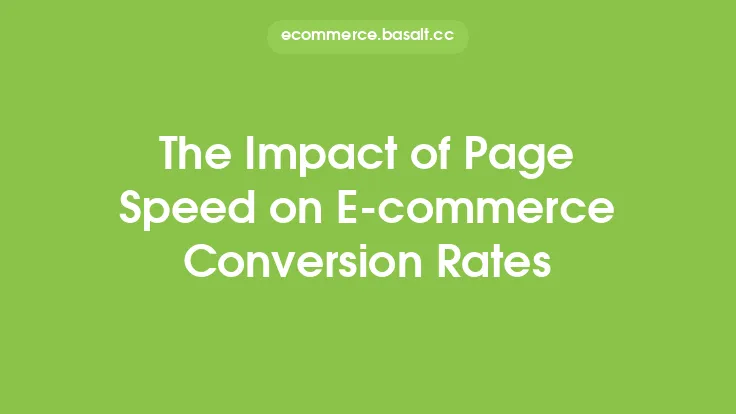In today's digital landscape, having a mobile-friendly e-commerce website is no longer a luxury, but a necessity. With the majority of online shoppers using their mobile devices to browse and make purchases, a website that is not optimized for mobile can lead to a significant loss in sales and revenue. One of the key factors that contribute to the success of an e-commerce website is its search engine optimization (SEO), and mobile-friendliness plays a crucial role in this regard.
Introduction to Mobile-Friendliness
Mobile-friendliness refers to the ability of a website to adapt its layout and content to fit the smaller screen size of mobile devices, such as smartphones and tablets. A mobile-friendly website is one that is easy to navigate, read, and interact with on a mobile device, providing a seamless user experience. This is achieved through the use of responsive design, which allows the website to automatically adjust its layout and content to fit the screen size of the device being used.
The Importance of Mobile-Friendliness in E-commerce SEO
Mobile-friendliness is a key ranking factor in Google's algorithm, and it plays a significant role in determining the visibility of an e-commerce website in search engine results pages (SERPs). A mobile-friendly website is more likely to rank higher in search engine results, as it provides a better user experience and is more accessible to mobile users. In fact, Google has stated that mobile-friendliness is a key factor in its ranking algorithm, and websites that are not mobile-friendly may be penalized in search engine results.
How Mobile-Friendliness Affects User Experience
A mobile-friendly website provides a better user experience for mobile users, which is essential for e-commerce websites. A website that is easy to navigate and use on a mobile device is more likely to convert visitors into customers, as it provides a seamless and convenient shopping experience. On the other hand, a website that is not mobile-friendly can lead to a high bounce rate, as users may become frustrated with the difficulty of navigating the website on their mobile device.
The Impact of Mobile-Friendliness on Conversion Rates
Mobile-friendliness has a significant impact on conversion rates, as it provides a better user experience and makes it easier for users to complete a purchase on their mobile device. A study by Google found that 61% of users are unlikely to return to a website that is not mobile-friendly, and 40% of users will visit a competitor's website instead. On the other hand, a mobile-friendly website can increase conversion rates by up to 28%, as it provides a seamless and convenient shopping experience.
Best Practices for Creating a Mobile-Friendly E-commerce Website
Creating a mobile-friendly e-commerce website requires careful planning and design. Some best practices for creating a mobile-friendly website include using responsive design, optimizing images and content for mobile devices, and ensuring that the website is easy to navigate and use on a mobile device. Additionally, it is essential to test the website on different mobile devices and browsers to ensure that it provides a seamless user experience.
The Role of Page Speed in Mobile-Friendliness
Page speed is a critical factor in mobile-friendliness, as it can significantly impact the user experience. A website that loads slowly on a mobile device can lead to a high bounce rate, as users may become frustrated with the wait time. Google recommends that websites load in under 3 seconds, and a slow-loading website can be penalized in search engine results. To improve page speed, e-commerce websites can use techniques such as compressing images, minifying code, and using caching.
The Future of Mobile-Friendliness in E-commerce SEO
As the use of mobile devices continues to grow, mobile-friendliness will become an even more important factor in e-commerce SEO. Google has already announced that it will be switching to a mobile-first index, which means that the mobile version of a website will be used to determine its ranking in search engine results. This means that e-commerce websites that are not mobile-friendly will be at a significant disadvantage, and may struggle to compete with websites that are optimized for mobile devices.
Conclusion
In conclusion, mobile-friendliness is a critical factor in e-commerce SEO, and it plays a significant role in determining the visibility and success of an e-commerce website. By providing a better user experience, increasing conversion rates, and improving page speed, a mobile-friendly website can help e-commerce businesses to drive more sales and revenue. As the use of mobile devices continues to grow, it is essential for e-commerce businesses to prioritize mobile-friendliness and ensure that their website is optimized for mobile devices. By doing so, they can stay ahead of the competition and achieve long-term success in the ever-changing world of e-commerce.





